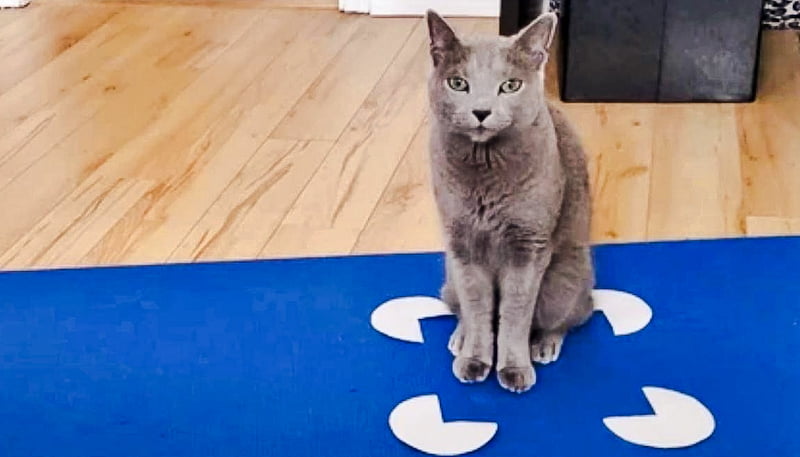The idea that all domestic cats suffer from Asperger’s syndrome is based on their character. The domestic cat character is like that of a child diagnosed with Asperger’s which is an umbrella diagnosis of autism spectrum disorder.
So, what is this character? Answer: difficulties with social interaction and nonverbal communication together with restricted and repetitive patterns of behaviour. Yes, you can see the distinct similarity between an Asperger’s child and a companion cat. Both are family members with similar personalities. Cats like routines and they don’t like change in their lives. They communicate with us through these routines and their body language primarily but use a limited vocalisation range to get their point across.
But that is where it stops. There are some big question marks over making this sort of comparison as made by Kathy Hoopman in her ‘playful’ book: All Cats Have Asperger Syndrome’.

The interesting comparison is that we regard cats with Asperger-like personalities as normal for the cat but we regard children with the same personalities as suffering from a mental health condition that needs to be treated and corrected. I wonder if doctors have created a mental health condition out of ‘normal’ human behaviour to suit themselves and the pharma businesses?
You could argue that all children have a range of personalities just as they also have a range of gender preferences. The gender and sexual preferences of people is on a spectrum. It is not black-and-white: female and male. We are only now beginning to accept that. Although I have understood it for decades because it is obvious. There is a great fight to achieve this acceptance in society generally. It is a good fight.
So why do we have to pigeon-hole kids into artificially constructed categories created by medics and thereby brand them with a mental health issue which may change their lives negatively?
Why don’t we accept a child who has difficulties with being sociable? It might be normal: part of the range of personality types rather than labelling it as a “developmental disorder”. That’s horrible. It is saying the child has a bad brain. Do people have to be sociable and have great communication skills? Asperger’s kids have other skills and advantages. Just like cats have skills that are to their great advantage.
It can be an overwhelming experience for parents to receive an Asperger’s diagnosis for the child. Does it have to be like this? Why not just say the child has innately relatively poor communication skills but is superior at other things? Some are very gifted. Let’s focus on the talents and positives rather than branding with negatives.

It is the same with cats: let’s enjoy and celebrate their unique gifts and personalities. It is a special relationship. Let’s not denigrate cats for being overly independent and unsociable. It isn’t even true anymore as cats have learned to be quite sociable.
There is a similarity between Asperger’s children and domestic cats. We don’t categorise the latter with mental health issues so why do it with kids? You’ll say that it helps kids as it helps us to better understand their unusual behaviour. But wouldn’t it be better to accept their behaviour as within the wide range of ‘normal behaviour’. In other words, accept and embrace it.
Humans have difficulty in accepting people who are different. It is because humans are frightened of difference because they are frightened of everything. Anything strange is potentially harmful and it must be squashed out and ‘normalised’. Is this the right way to go? We fully accept domestic cats for their Asperger-like personalities let’s do the same with kids.

